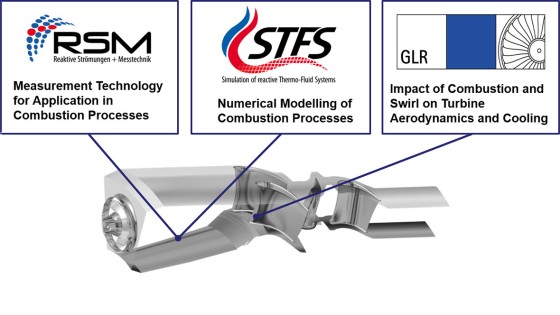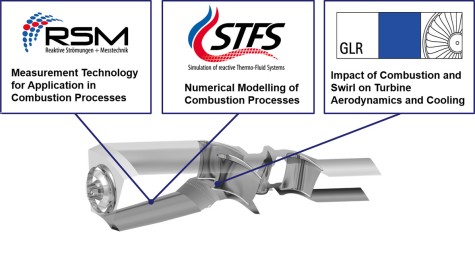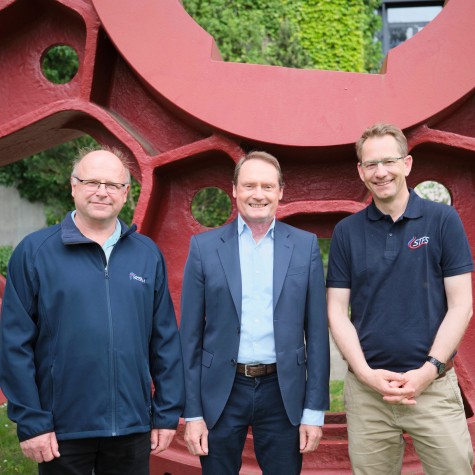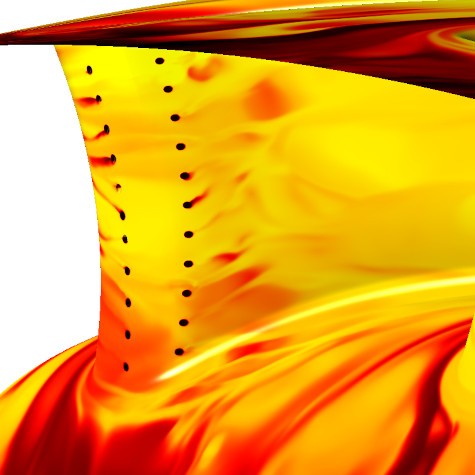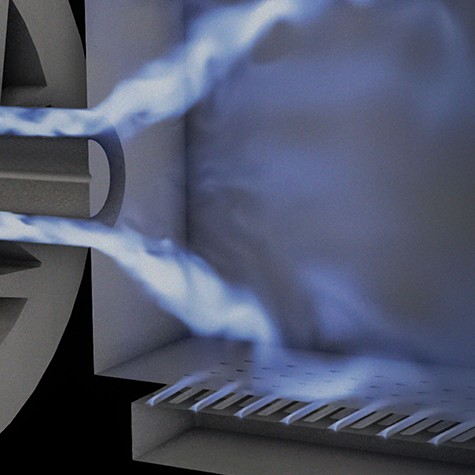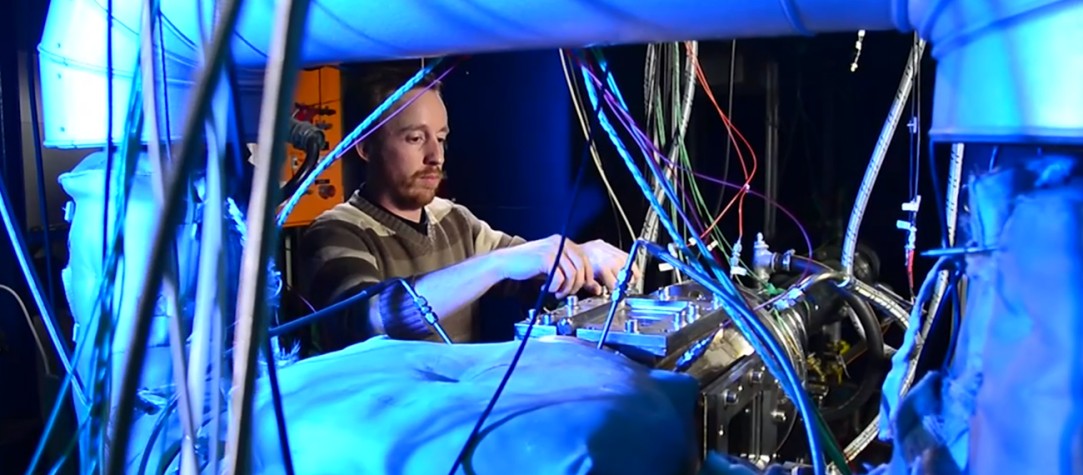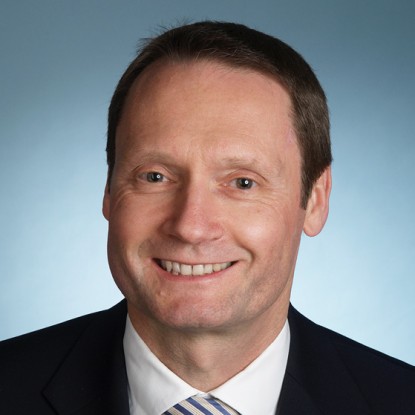UTC Combustor and Turbine Aerothermal Interaction

Rolls-Royce University Technology Centre (UTC)
Combustor and Turbine Aerothermal Interaction
The Rolls-Royce University Technology Centre at TU Darmstadt was founded to investigate the aerodynamic and thermal interaction between combustion chamber and turbine. In a strategic partnership between science and industry, we develop new technologies for aircraft engines that will meet future economic and ecological goals.
The Rolls-Royce University Technology Centre (UTC) was established in 2006, and has since achieved valuable results in the field of the environmental performance of aero-engines. The UTC thus serves one of the core objectives of the aviation industry, which is striving to achieve stringent environmental targets by 2050 (Flightpath 2050) as part of the industry-wide research alliance ACARE (Advisory Council for Aeronautics Research in Europe).
The ambitious ACARE targets of reducing nitrogen oxides by 90 % per passenger kilometer, CO2 emissions by 75 %, and noise by 65 % are only possible through fundamental revisions in the combustion process. It is essential to take technical changes in the combustion chamber into account when designing turbines, because the temperature at the turbine inlet already exceeds the melting temperatures of the materials used. Sophisticated cooling mechanisms ensure safe turbine operation at these temperatures and enable high efficiencies and low CO2 emissions in modern aircraft engines.
This is the development environment in which the research center at the TU Darmstadt operates, where researchers are investigating new combustion technologies and their modeling on the one hand, and their effects on the turbine on the other.
Participating institutes
At TU Darmstadt, scientists from three institutes contribute to the research in aero-engines with the industry partner Rolls-Royce Deutschland.
The UTC is directed by Prof. Heinz-Peter Schiffer (Institute of Gas Turbines and Aerospace Propulsion, GLR (opens in new tab)). Additionally, the heads of institute Prof. Christian Hasse (Institute of Simulation of reactive Thermo-Fluid Systems, STFS (opens in new tab)) and Prof. Andreas Dreizler (Institute of Reactive Flows and Diagnostics, RSM (opens in new tab)) and their teams contribute to the success of the cooperation.
Together, the institutes provide significant knowledge in the areas of experimental measurements and investigations of combustion processes (RSM) and the compressor and turbine stage (GLR), as well as numerical counterparts for combustion modeling (STFS) and fluid flow simulations of compressor and turbine (GLR).
News
Currently no entries available.

